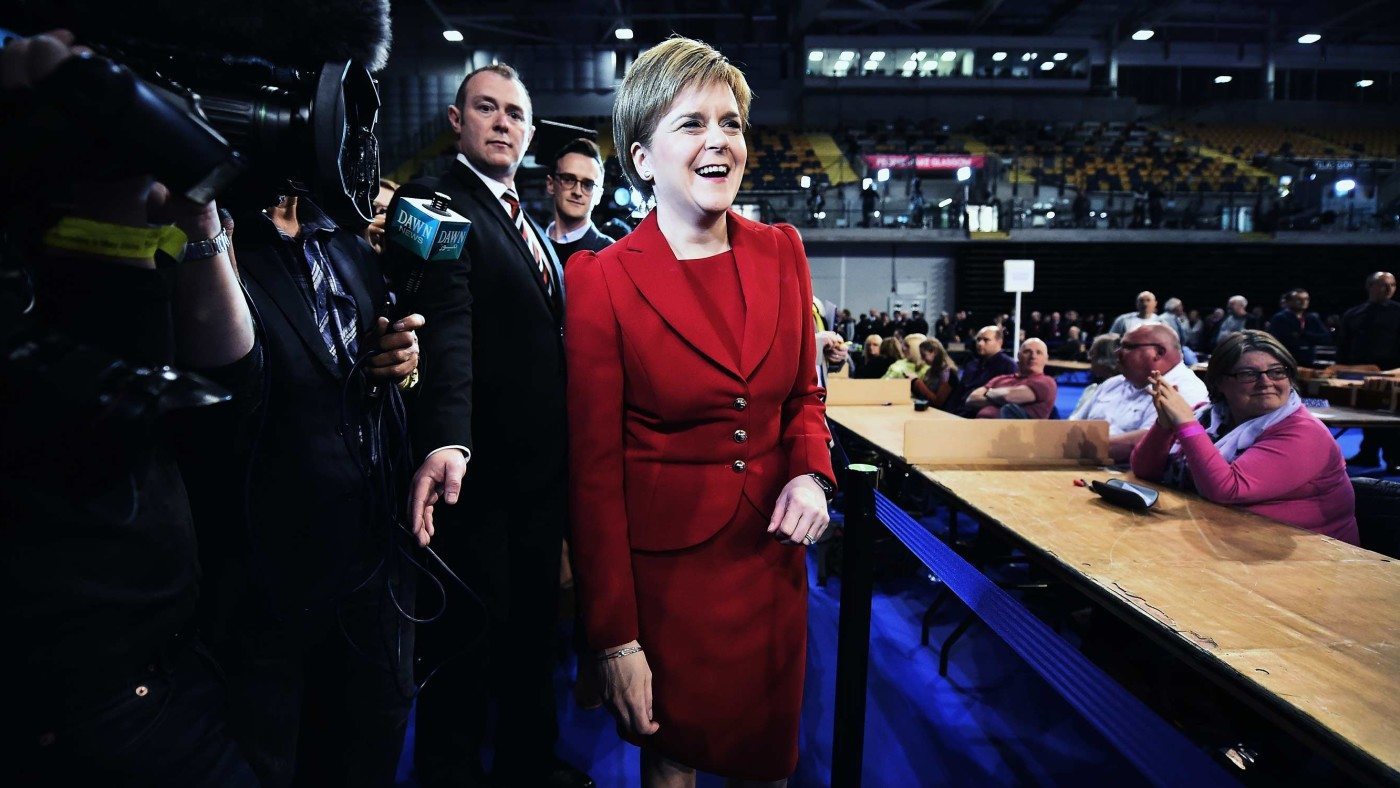“Historic victory” was the BBC’s headline for the SNP performance in the Scottish elections, a mantra constantly repeated on-air by its acolytes. Er… What kind of historic victory do they mean? Oh, right, one where the nationalists progressed from 69 MSPs and an overall majority at the last election to 63 MSPs and minority government this time out. That kind of historic victory.
Was “historic” perhaps a misprint for Pyrrhic? The Scottish media have been conditioned for so long to regard unrelenting SNP landslides as the natural order of things that when this pattern is broken they are caught unawares. What broke the pattern? Or, rather, who? Nicola Sturgeon, is the answer. No decision is taken by the nationalists without Queen Nicola’s assent. She came up with Baldrick’s cunning plan to shift the focus of the campaign, in its closing and most crucial stage, onto the constitution.
With crass political ineptitude she chose to pick at the sores of the independence referendum, creating the menace, albeit vague, of a second plebiscite. That set the alarm bells ringing among those voters who are the SNP’s most precious asset: people opposed to independence but willing to install an SNP government at Holyrood to administer the devolution settlement. This was a blunder of classic proportions and Sturgeon was punished accordingly.
This was Nicola’s first Holyrood outing without Alex Salmond to chart the course and the outcome has discredited her political judgement.. The media cheerleaders are babbling on about how she has now secured a personal mandate. Yes, indeed and, unlike Uncle Alex, it is a mandate only for minority government.
It is a mandate, too, which specifically excludes a second independence referendum. There was no commitment to one in the SNP manifesto and now the electorate has closed down that option for the foreseeable future. It would be difficult to exaggerate the significance of this setback for the SNP. Its primary issue, its raison d’etre, has become toxic.
Nicola Sturgeon now governs by permission of six Green MSPs, from a party that secured only 13,000 constituency votes and a meagre 150,000 on the regional list. Already the Greens have made a total ban on fracking a condition of support, so Scotland’s eagerness to embrace the future is reaffirmed, as investors will note.
The electoral map even shows a thin blue ribbon of Conservative seats sealing off the Border (the Tories won seven constituencies out of 73, an achievement that has driven them mad with joy) and the Gnostic workings of the “varied” D’Hondt electoral system awarded them a further 24 on the regional list, promoting them to second largest party. But there was a warning for them, too, in the small print: they only won 22,000 more votes on the regional list than in the constituencies and it was Labour’s drop of 78,000 on the second ballot that produced these interesting results.
In her post-election statement Nicola Sturgeon sounded cautious, as well she might. “I secured the personal mandate,” she insisted, but otherwise walked on eggs. She will make no formal arrangement with other parties and in appeasing tones claimed “there is common ground aplenty”. Her priority is education (so, not the constitution after all?). Apparently Scottish education is in a mess. Dear God, the First Minister seemed to ask, who on earth has been running this shambles for the past decade?
She puts innovation at the heart of boosting the economy (but not, of course, fracking). There was the mandatory genuflection to “climate change”, a pledge to mitigate austerity (to appease the unreconstructed left, i.e. the overwhelming majority of the Scottish political class), and to make the country “fairer, wealthier and stronger”. There are several conflicting magnetic pulls within those aspirations.
The reality is that Scottish independence has receded beyond the political horizon. The nation’s antipathy towards even a further attempt to secure it has been made punitively clear to the SNP. The supposedly irresistible momentum of the SNP has been halted; in 2020 it will go, even if only modestly so, into reverse. The SNP is now just the largest of five minority parties jostling for power at Holyrood.
Nicola Sturgeon ended her remarks by declaring, in the classic mode of an embattled politician, that she was now looking forward to “getting on with the job”. Good luck with that, Nicola. It worked well for Gordon Brown.


